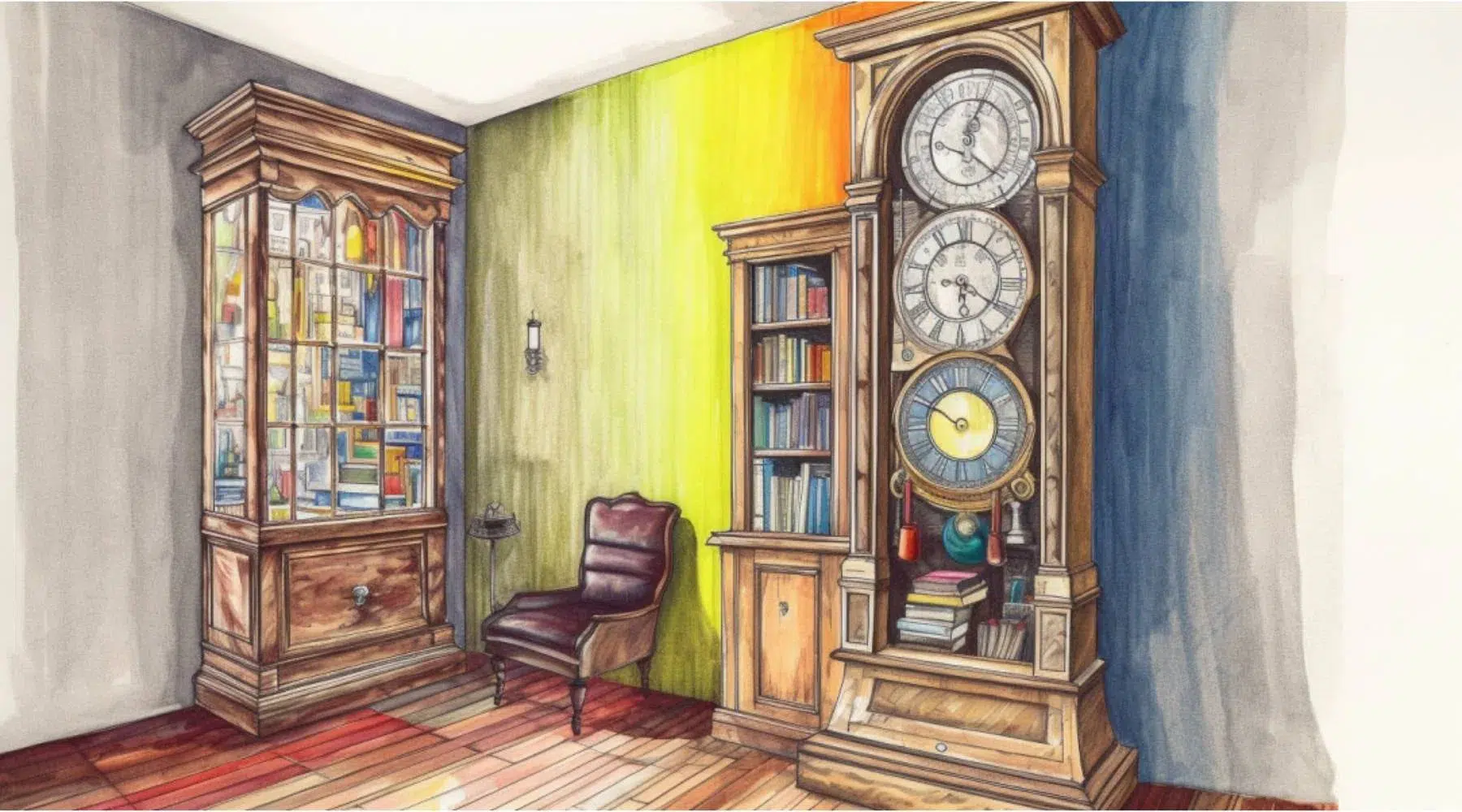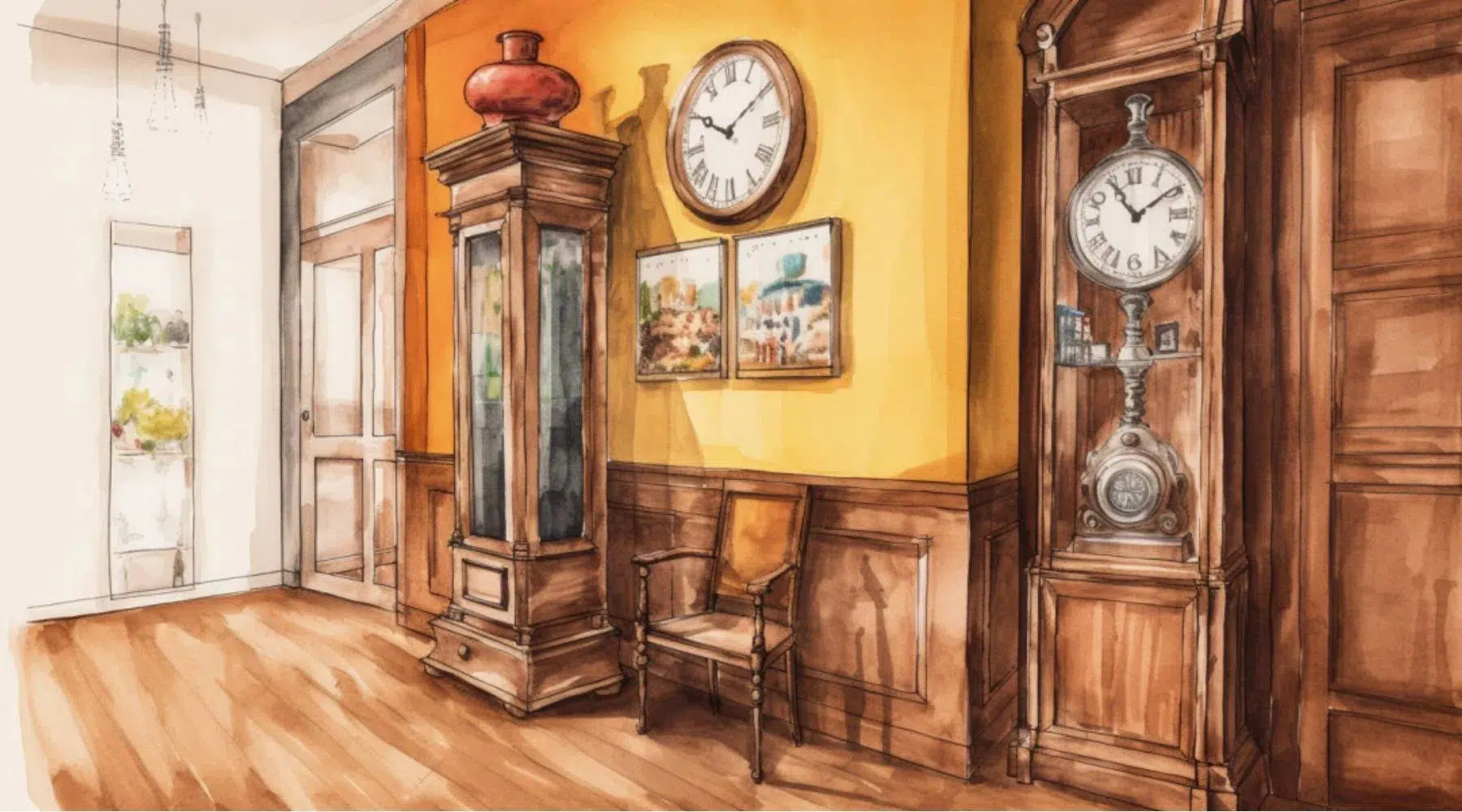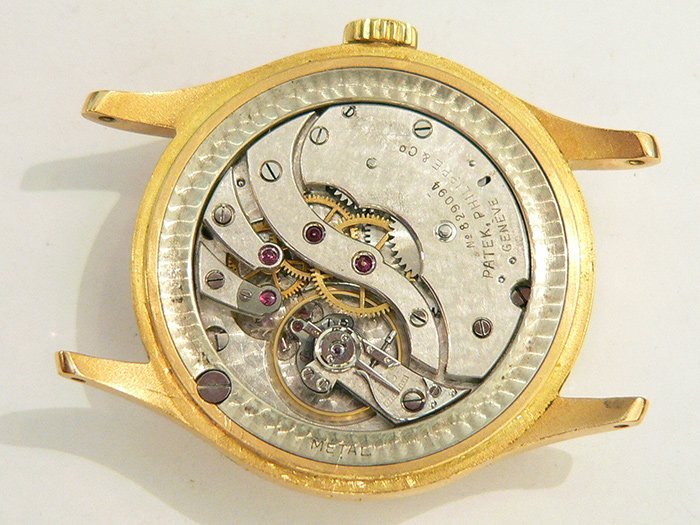Grandfather clocks, known for their elegance and intricate craftsmanship, can encounter various issues over time. While some problems require professional attention, many common issues can be addressed with a bit of know-how. Here’s a practical guide to help you diagnose and fix common problems with grandfather clocks.
1. Timekeeping Issues
Problem: Your grandfather clock is not keeping accurate time.
Solution:
- Adjust the Pendulum: Check the pendulum for correct positioning. Adjust the pendulum’s length to regulate the clock’s speed. Shortening the pendulum will make the clock run faster, while lengthening it will slow it down.
- Level the Clock: Ensure the clock is level. An uneven surface can affect the pendulum’s swing and cause timekeeping issues. Use a spirit level to check and adjust the clock’s position.
- Clean the Mechanism: Dust and debris can affect the clock’s accuracy. Gently clean the internal components with a soft brush or compressed air to remove any buildup.
2. Chiming Problems
Problem: The clock’s chimes are not working properly.
Solution:
- Check the Gear Alignment: The gears responsible for the chimes may be misaligned. Carefully inspect the gear mechanism and realign any displaced gears.
- Inspect the Chime Rods: Ensure the chime rods are properly positioned and not obstructed. Sometimes, dust or debris can prevent the rods from striking correctly.
- Adjust the Chime Hammer: The chime hammer should strike the chime rods squarely. Adjust the hammer’s position if it’s not hitting the rods correctly.

3. Sticking or Stopping
Problem: The clock is sticking or stopping intermittently.
Solution:
- Lubricate the Mechanism: Lack of lubrication can cause the clock to stick or stop. Apply clock-specific oil to the moving parts, following the manufacturer’s recommendations. Avoid over-lubricating, as excess oil can attract dust.
- Check for Obstructions: Inspect the mechanism for any obstructions or debris that may be causing interference. Remove any foreign objects carefully.
- Examine the Escapement: The escapement regulates the clock’s movement. Ensure it is functioning correctly and not obstructed.
4. Winding Issues
Problem: The clock does not wind properly or the winding key feels loose.
Solution:
- Inspect the Winding Mechanism: Check the winding mechanism for any signs of wear or damage. Tighten any loose components and ensure the winding key fits securely.
- Replace the Winding Key: If the key is worn or damaged, replace it with a new one that matches the clock’s specifications.
- Check the Gear Train: The gear train responsible for winding the clock may need attention. Inspect the gears for any signs of damage or misalignment.
5. Imbalance or Tilt
Problem: The grandfather clock appears to be out of balance or tilted.
Solution:
- Level the Clock: Use a spirit level to check if the clock is standing evenly. Adjust the feet or base to ensure the clock is level and stable.
- Check the Floor: Ensure the floor where the clock is placed is stable and level. Uneven flooring can cause imbalance issues.
6. Broken Glass or Doors
Problem: The glass or doors on the clock are broken or damaged.
Solution:
- Replace Broken Glass: Measure the broken glass and have a replacement cut to fit the frame. Carefully install the new glass, ensuring a secure fit.
- Repair or Replace Doors: If the doors are damaged, consider repairing them with wood glue or replacing them if necessary. Consult a professional if the repairs are beyond your skill level.
7. Key or Lock Problems
Problem: The clock key or lock mechanism is not functioning properly.
Solution:
- Lubricate the Lock: Apply a small amount of graphite powder to the lock mechanism to improve its functionality. Avoid using oil, which can attract dust and grime.
- Check the Key Fit: Ensure the key fits properly in the lock and is not damaged. Replace the key if it is worn or broken.
8. Handling and Storage Issues
Problem: The clock has been damaged due to improper handling or storage.
Solution:
- Handle with Care: Always handle the clock carefully, supporting it properly when moving. Avoid sudden jolts or rough handling.
- Proper Storage: If storing the clock, use a protective cover and keep it in a stable environment with controlled temperature and humidity.
Conclusion
Addressing common problems with grandfather clocks involves careful inspection, maintenance, and adjustment. By following these practical tips, you can effectively manage timekeeping issues, chime malfunctions, and other common challenges. However, if you encounter complex problems or are unsure about performing repairs, consulting a professional clock repair technician is always a wise choice to ensure the longevity and proper functioning of your cherished timepiece.





Es gibt zwar keinen Telefon-Support, aber das Casino bietet
einen hilfreichen FAQ-Bereich für allgemeine Fragen. Der genaue Auszahlungsbetrag kann variieren, abhängig von der gewählten Methode und Ihrem
Standort. Die Verfügbarkeit gängiger Zahlungsoptionen sorgt für Bequemlichkeit und ermöglicht es den Spielern, sich mit den Angeboten des Casinos vertrauensvoll
und einfach zu beschäftigen. 1Bet Casino bietet eine Vielzahl von Zahlungsmethoden, die
schnelle und sichere Transaktionen für Einzahlungen und Abhebungen gewährleisten.
Das Spielangebot von 1Bet Casino wird von einer Vielzahl von über
50 Spieleanbietern betrieben, die eine reiche Auswahl an Titeln gewährleisten. Bei der Auswahl eines Online-Casinos empfiehlt es sich, mehrere Plattformen zu untersuchen, um
diejenige zu finden, die am besten zu Ihren persönlichen Vorlieben passt.
Tischspiele kommen teils auf 98 % oder sogar
99 %. Deswegen ist der Return to Player der Casinospiele überall gleich.
Liebhaber der Sportwetten finden eine eigene Kategorie mit den besten Wettmärkten.
References:
https://online-spielhallen.de/posido-casino-bewertung-ein-tiefenblick-fur-spieler/
Discover the secrets of 999,999,999,999,999,999,999 with our full breakdown of
its prime factors, divisors, and mathematical properties…
This visualization shows the relative proportions of
its 7 prime factors (outer circle), plus the relationship between these and its
256 divisors. You could say that a number is made or ‘composed’ of its
prime factors. Its factors, divisors, and base properties can show
some interesting behavior.
What makes 999,999,999,999,999,999,999 an interesting number from a mathematical point of view?
Just find the currency and get spelling for it. By using this site you accept our terms
and conditions including our privacy and cookie, copyright and permissions policies.
Every whole number greater than 1 is formed from at least one prime factor.
Below you’ll find its key properties, along
with some statistical info, fun facts and trivia.
It has a total of two hundred fifty-six divisors. It is composed of seven distinct prime numbers multiplied together.
References:
https://blackcoin.co/free-casino-poker-sites-which-one-is-the-very-best/
Best enjoyed with friends, our banquet menu options are an easy crowd-pleaser featuring a wide variety of our most popular dishes.
Join us on the lawns on Saturday, 26th April 2025 from 5pm for fun, food and entertainment in true territory style.
But there’s still a chance to join the celebration — limited table bookings
are still available at Sandbar and il Piatto, offering prime positioning and a premium experience.
All Gaming & Major Promotions are R18 & exclusive
to Lucky North Club Members. This Dry Season, experience the enchantment and energy of
Carnivale brought to life in a way only Mindil Beach Casino Resort
can deliver. From 19 July, earn entries and join us every hour from 6pm on Saturdays
& 3pm on Sundays for your shot at another game show-style excitement!
If you love the whole cocktail-sipping, sun-soaking beach club experience, INFINITY at the Mindil Beach Casino Resort is the ultimate venue where Darwin’s social scene hits a whole
new level. Situated on the resort’s expansive lagoon, these rooms
offer swim out access, private sun lounges plus an outdoor setting on your private balcony.
The spacious one bedroom suites offer guests an elegantly
appointed lounge area, a marble ensuite and luxurious corner spa, and a private balcony with views of the lush
tropical gardens, pool or ocean. The elegantly appointed lounge features separate living
and dining areas which can host up to six people and has two private
balconies.Bedrooms offer guests a sanctuary with a marble ensuite and a balcony with
magnificent views. Grand suites offer guests the space to relax
and enjoy the natural beauty of lush tropical gardens.
References:
https://blackcoin.co/fair-go-casino-the-ultimate-review/
online casino roulette paypal
References:
https://www.smilecarexport.com/
online casino mit paypal
References:
https://zenithgrs.com/employer/best-real-money-online-pokies-in-australia-for-december-2025/